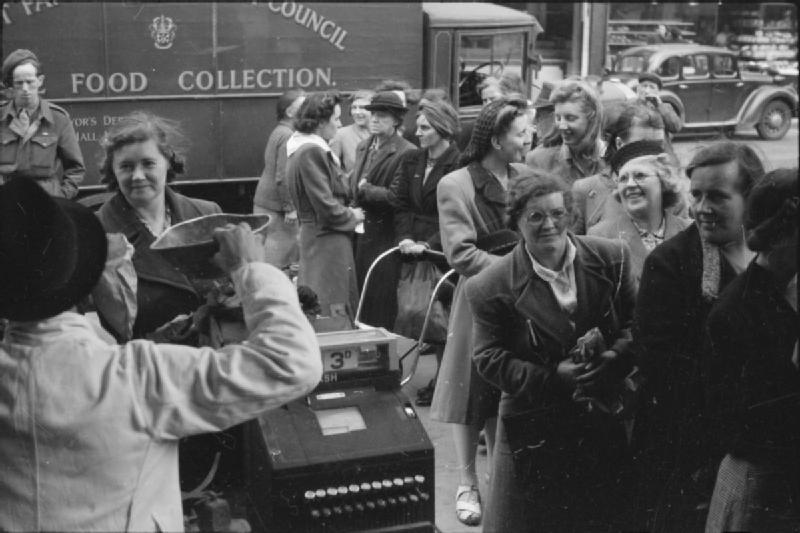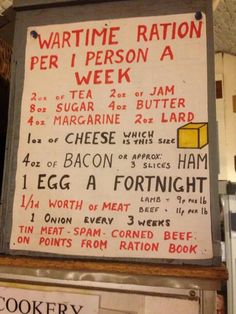Lessons from the Past: WWII Rationing in Britain

Britons had to endure severe rationing as the Nazis literally choked the nation. Due to the small amount of land, as well as a shortage of resources and manpower, there were severe disruptions in terms of what little the nation could produce and distribute to its citizens. Looking back at some examples of what citizens faced gives us a glimpse into how difficult life can become if we face a SHTF scenario.
Food Shortages
The United Kingdom had limited supplies of staple items to begin with, such as milk, butter, bread and livestock. Small, family farms were the norm when people had limited amounts of space to grow crops and raise animals. During the war, rationing was severe. This was partially-due to the fact that the country relied heavily on imports that were not reaching their shores. It was also due to the fact that almost every able-bodied man was either drafted or volunteered to join the military. Consequently, what little agricultural production occurred was disrupted when men left their farms for the battlefield.
Things got so bad that not only did women work in factories to produce items needed for the war effort, but many were also called on to plow fields and plant and harvest crops.
The main source of meat came from either fish or SPAM. Yes, SPAM was a staple food for our British cousins during WWII. It was against the law to kill a chicken because the government viewed chickens as a source of protein for eggs. There was even a rule that allowed the government to seize chickens if people kept more than three to six on their property. The government also had a process in place to count and regulate how many pigs existed in the UK. They went so far as to require farmers to report a pig’s death in order to allow inspectors to visually confirm that the pig died and the owners didn’t eat it.
This was all designed to control the food supply in order to prevent the country from starving. Things were so bad that tight restrictions were placed on everything from how many eggs someone could have per week to a rule that made making soap illegal because it required fat from animals, which was required by the government for all sorts of war-time needs.

Ridiculously Low Amounts
People were entitled to 1.5 eggs per week, two pieces of bread per day and two ounces of lard or margarine per week. Individuals could have two ounces of cheese per week as well as an allotment of canned goods that varied depending on availability. Imagine being forced to exist with these minimal amounts. Consider the value of these items as a commodity that could be bartered or traded.
Restrictions on textiles, nylon and metals were equally strict as these materials were used for the war effort as well. In other words, people had very little and access to extra stores of items was either impossible or very expensive to obtain. Even those who had their own land and farms had limited options in terms of what they could produce and consume.
There was no economy to speak of, no normalcy and very little stability. People just pulled together, suffered together and endured until things got better.
Out of Thin Air
Air raids were continuous. Bombs fell from planes until they were replaced by the notorious V-2 rockets. The government offered little in terms of practical assistance other than making sure people had gas masks and access to shelters. However, most shelters were little more than corrugated domes atop wooden frames. People were told to place landscaping items on the roof to attempt to make the shelters blend in with the surrounding terrain to confuse bombers. However, the reality is that people were sitting ducks who were sheltered in a sense of false security.
These are just a few examples that highlight the silliness of government solutions and the scarcity of resources that people had to deal with for years. We could easily face a similar predicament if we get hit with just one of the multitude of threats that our nation faces today. Imagine living a life with a government that provides little in terms of protection or services while controlling what we can eat, drink, wear and consume.
Most people don’t appreciate the fragility of our entire social structure, and it only takes one little hiccup to throw us to a game-changing nightmare. The only thing that we have going for us is that we can prepare as best as we can. Take advantage of the time we have now so that you will have somewhat of an advantage later when the SHTF. Learn from the past in order to help avoid facing a similar fate in the future.

